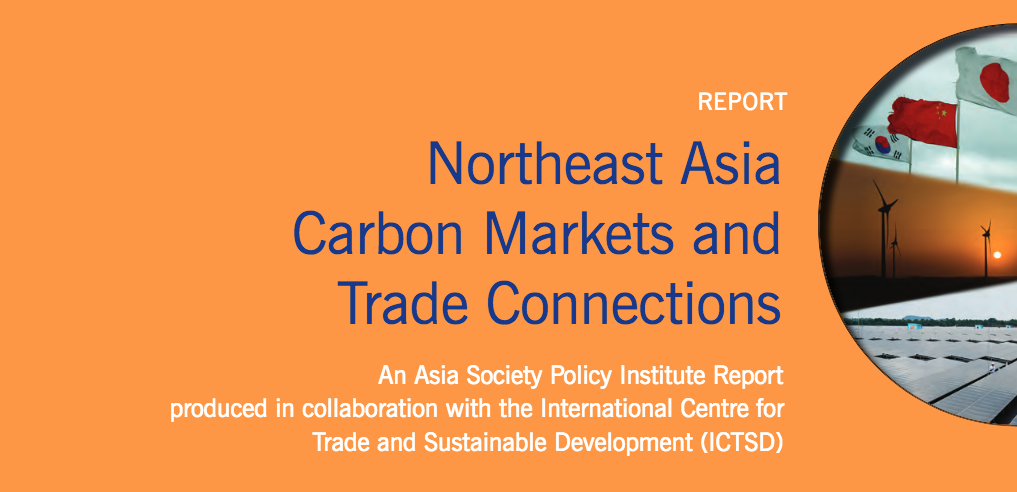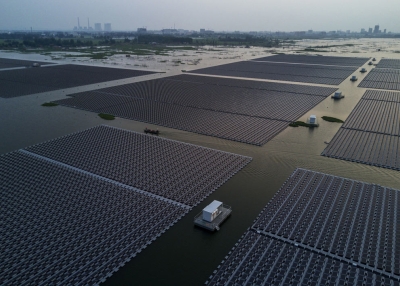June 2018
The Asia Society Policy Institute (ASPI) and the International Centre for Trade and Sustainable Development’s (ICTSD) report, "Northeast Asia Carbon Markets and Trade Connections," focuses on carbon pricing and the linking of carbon pricing systems as a potential catalyst for increased trade relationships, and explores how the benefits from linking can be heavily impacted by trade relationships and competitiveness concerns within the economies of China, Japan, and Korea.
The report introduces the different approaches to carbon pricing and linking currently being used by the three countries, explains the benefits and challenges of linking different carbon pricing systems, and proposes ways to deepen integration of carbon pricing and trade policies to promote regional carbon market linkage as well as increase trade between all three countries.
The report was co-authored by ICTSD's Andrei Marcu and Mahesh Sugathan. ASPI's Senior Advisor for Sustainability Jackson Ewing edited the report.
About the Authors
Andrei Marcu is Senior Fellow at ICTSD and Director of the European Roundtable on Climate Change and Sustainable Transition. He has been one of the corporate sector pioneers in the issues of climate change, greenhouse gas markets, and related areas on sustainable development. Since 1993, Marcu has been actively involved in many areas of climate change related initiatives, including as Chief Executive Officer of BlueNext. He joined Mercuria Energy in September 2009 in the role as Head of Regulatory Affairs, Environment and Climate Change. Marcu was previously Founder, President, and CEO of International Emissions Trading Association, as well as Senior Managing Director of the World Business Council for Sustainable Development. He was also Senior Advisor on Climate Change and Emissions Trading at Bennett Jones LLP in Canada.
Mahesh Sugathan is Senior Research Fellow at ICTSD in Geneva working on trade, climate change, and sustainable energy issues with a focus on climate technologies. He is also an independent consultant on trade policy and provides business facilitation services for private sector firms. He previously worked as a programme coordinator for economics and trade policy analysis at ICTSD. He has also been a consultant at the World Bank’s South Asia Regional Office in India on issues of renewable energy and energy efficiency investment policy frameworks, and has consulted for various other international organizations including the International Trade Centre, the United Nations Environment Programme, and the ACP Secretariat.
About the Editor
Jackson Ewing is Senior Advisor for Sustainability at the Asia Society Policy Institute (ASPI). From 2015 to 2017, he served as ASPI’s Director for Asian Sustainability in New York, leading projects on environmental cooperation, responsible resource development, and international climate change policy. He is currently a Senior Fellow at the Nicholas Institute for Environmental Policy Solutions at Duke University, and has worked throughout Asia with actors in government, the private sector, civil society, and international organizations. He holds a doctorate in environmental security and a master’s degree in international relations from Bond University, a bachelor’s degree in political science from the College of Charleston, and an ongoing fellowship at the S. Rajaratnam School of International Studies.

